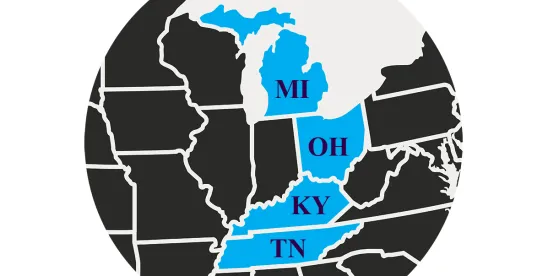Well folks, we told you Creasy had legs– and now you’d better believe it.
You’ll recall the recent–and wonderful–decision in Creasy in which the Court found that the TCPA was unconstitutional as applied to calls prior to July 6, 2020 by virtue of the Supreme Court’s work in AAPC. The result was that callers were granted a complete reprieve of all sins during the critical four year span that marked the high point of the robocalling epidemic.
As weird as the ruling in Creasy seemed at the time, reflection demonstrates that it was absolutely correctly decided–as another Court just determined today in Lindenbaum v. Realgy, Inc., Case No. 19 CV 2862, Doc No. 26 (N.D. Oh. Oct. 29, 2020).
The Lindenbaum case –which is available here Lindenbaum Ruling— reached the same result with a brilliant analysis of the prospective vs. retroactive impact of AAPC
The plaintiffs in AAPC sought the right to speak going forward on the grounds that the statute, as written, is an unconstitutional content-based restriction. The Supreme Court denied that relief, but offered a remedy in the form of eliminating the content based restriction. But, in our case, severance of the content-based restriction does not offer a “remedy” to correct past harm. Here, defendants do not seek the right to speak, having already done so. They seek the right to be free from punishment for speaking during a time when an unconstitutional content-based restriction existed. A forward-looking fix offers no remedy for this past wrong.
While this analysis departs a bit from Creasy, it is PRECISELY the analytic framework the Archduke and I laid out for applying Creasy in our latest podcast— which EVERYONE seems to have watched already.
The impact of Lindenbaum is.. the bomb.
Creasy court have been viewed as an aberration, but with Lindenbaum picking up its analysis and extending it with an even more secure footing–i.e. a close review of SCOTUS retroactivity analysis in the context of unconstitutional statutes- the case to be made for dismissing TCPA cases turning on calls/texts/faxes made prior to July 6, 2020 is overwhelming.
And notably, the Lindenbaum court was sensitive to the TCPA’s popularity and “important” purpose- but constitutional rules are even more important:
The Court cannot wave a magic wand and make that constitutional violation disappear. Because the statute at issue was unconstitutional at the time of the alleged violations, this Court lacks jurisdiction over this matter.
Amazing.
If you have questions about how best to leverage this ruling or the finer points of the argument let us know. We have tons of briefing around this and are filing a ton of Creasy motions. (Hint: you should be doing the same thing*)
More to come.




 />i
/>i

